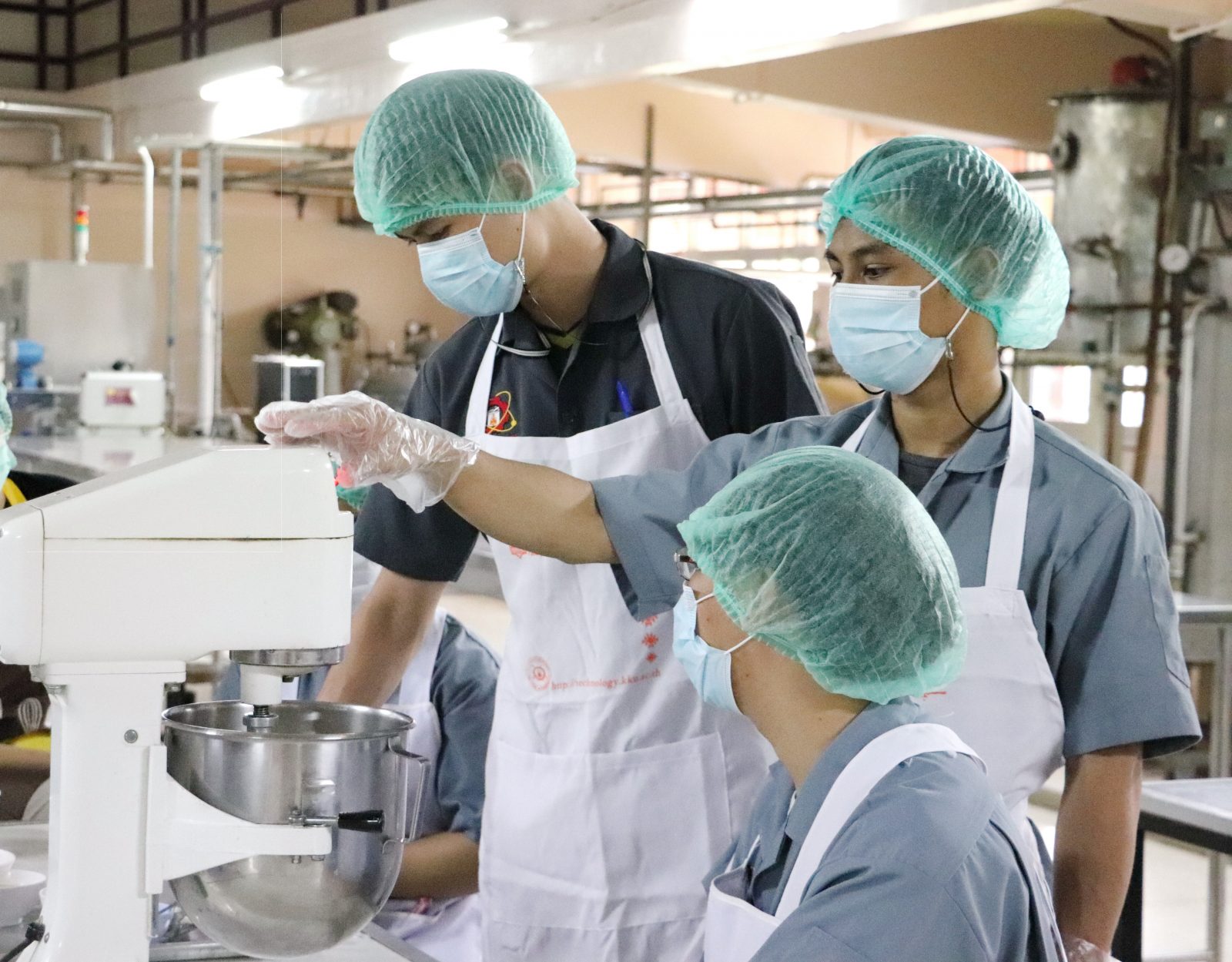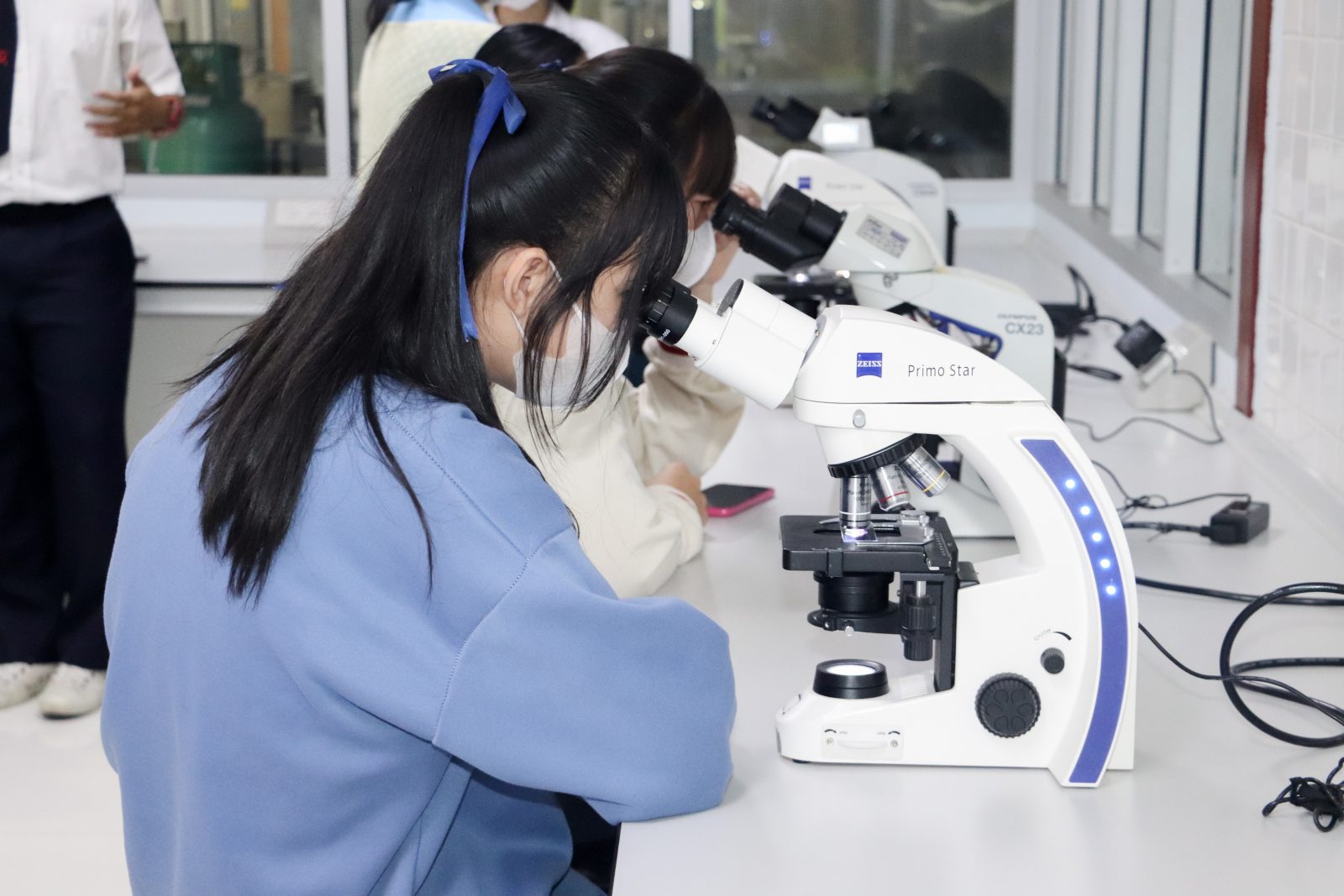Food Technology Program
The program focuses on providing students with a foundation in scientific knowledge and engineering principles related to the production of processed food products. It emphasizes production management systems, quality assurance in the food industry, and the development of new food products that are valuable, beneficial, and aligned with consumer demands.
Philosophy and Significance
The program aims to produce high-quality graduates with both theoretical and practical skills that are recognized by employers. It also instills moral and ethical values in students. The significance of the program lies in the importance of the food industry, which supports agricultural production and adds value by processing raw materials into various products. This generates income for the country and distributes earnings to farmers and laborers. Producing high-quality, diverse food products with extended shelf life that meet the demands of both domestic and international consumers is the responsibility of food technologists. Therefore, the curriculum is designed to maximize the benefits by integrating knowledge from various fields of basic science and technology. It includes food processing, management, and keeping up with technological advancements for transforming agricultural raw materials into food products, packaging, and ensuring quality control and consumer safety.


Objectives of the Program
The Bachelor of Science Program in Food Technology (Revised Curriculum, 2017) aims to produce graduates with the following qualities:
- Possess knowledge and experiential learning in both theory and practice, and be able to appropriately apply this knowledge and experience to perform tasks in the field of food technology accurately, as well as to pursue further studies at a higher level.
- Demonstrate interpersonal skills, leadership, and teamwork abilities, with the capacity to manage and organize work effectively, and maintain a positive attitude toward work.
- Develop communication skills, analytical thinking for problem-solving in professional contexts, and adapt to economic and social conditions. Be proficient in using computers, information technology, and modern management practices.
- Uphold moral and ethical principles in life and professional conduct, with a sense of social responsibility and adherence to professional ethics.
Programs Offered
- Bachelor of Science Program in Food Technology
- Master of Science Program in Food Technology
- Doctor of Philosophy Program in Food Technology
- Master of Science Program in Technology and Innovation of Plant-Based Food (New)
- Doctor of Philosophy Program in Technology and Innovation of Plant-Based Food (New)
Curriculum and Curriculum Structure
The program requires a minimum total of 140 credits throughout the entire curriculum.
Career Opportunities After Graduation
Graduates of the program possess the knowledge and skills to work in various sectors, including government agencies, industrial and private sectors, freelance professions, or even starting their own businesses in the field of study. They are qualified for a wide range of roles, such as:
– Scientists or researchers in research institutes (e.g., Genetic Engineering Centers or various ministries and departments).
– Lecturers or educators in academic institutions or private organizations.
– Professionals in diverse roles within the private sector, such as sales, production, research and development, or quality control in the food and beverage industry.
Job Characteristics After Graduation
Government and State Enterprises
Positions such as lecturers, researchers, academic officers, or scientists in various organizations, including universities, Rajabhat Institutes, the Food and Drug Administration, the Department of Medical Sciences, the Department of Livestock Development, the Department of Fisheries, etc.
Private Sector
In food processing industries of various types, as well as companies involved in quality control of production processes and food products, distributors of chemical ingredients, packaging materials, equipment, and tools for production or food analysis. Graduates can work in roles related to production process control, quality control, research and development, product development, technical sales and service officers, or consultants for systems in the food industry.
Department of Food Technology
Academic Office, TE06 Building, 3th Floor,
Phone: 061 924 0404

